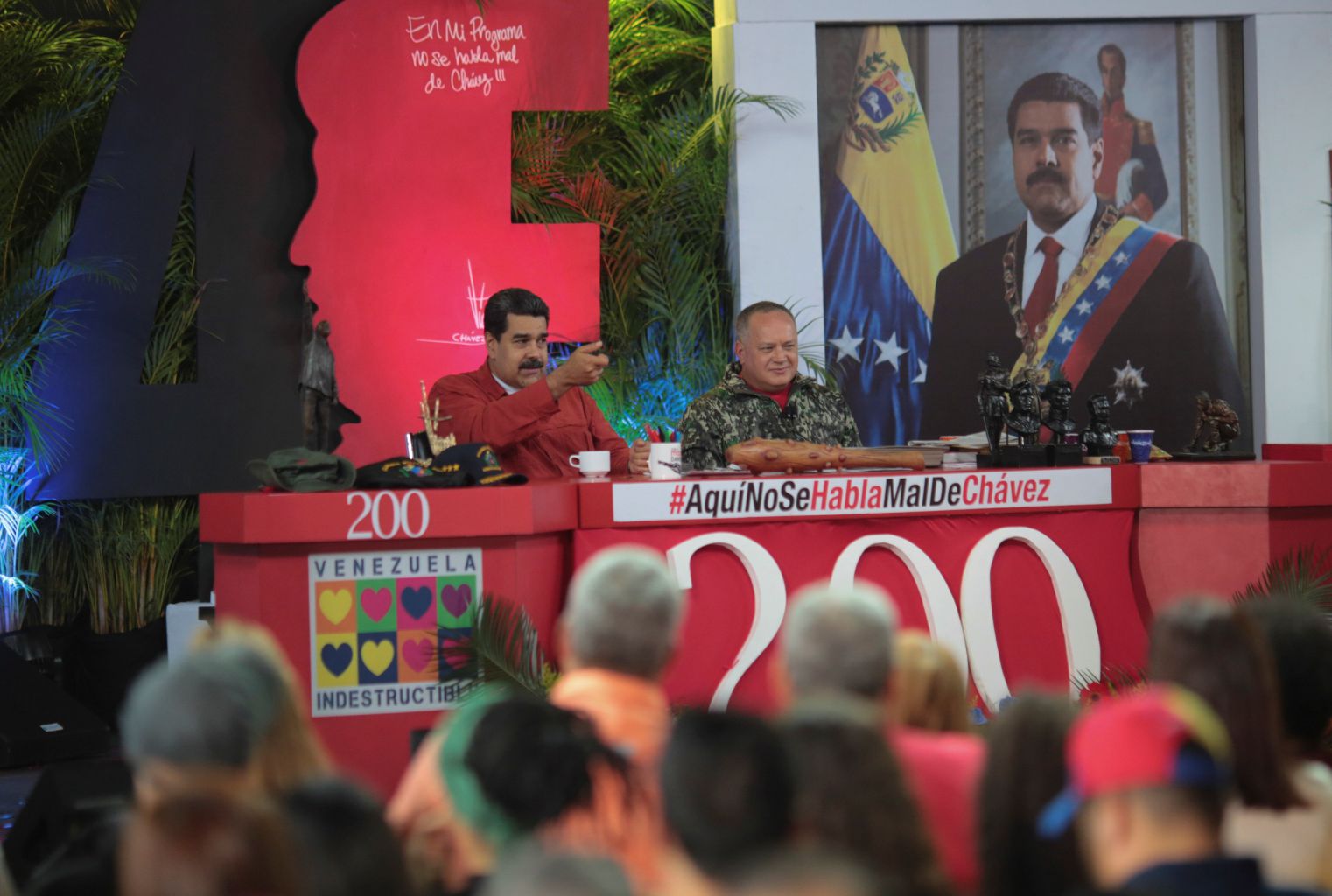US imposes sanctions on Venezuelans ahead of presidential election
Sign up now: Get ST's newsletters delivered to your inbox

Venezuela's President Nicolas Maduro speaks during a TV show with National Constituent Assembly member Diosdado Cabello in Caracas, Venezuela, on April 11, 2018.
PHOTO: REUTERS
Follow topic:
CARACAS, VENEZUELA (NYTIMES) - Just two days before presidential elections in Venezuela, the Trump administration on Friday (May 18) announced sanctions against a powerful governing party politician, accusing him of drug trafficking, extortion, money laundering and embezzling government money.
The Treasury Department's Office of Foreign Assets Control in Washington said that it had placed the politician, Mr Diosdado Cabello, a top Socialist Party figure, on a list of sanctioned individuals, freezing his assets in the United States and barring Americans from doing business with him.
Mr Cabello, 55, has long been considered the second-most powerful man in the country, after President Nicolás Maduro, who is running for re-election on Sunday.
The Treasury Department said that it was also imposing sanctions on Mr Cabello's brother, Mr José David Cabello, 49, who runs the government agency in charge of customs and taxation, and Mr Diosdado Cabello's wife, Ms Marleny Josefina Contreras Hernández, 57, the Minister of Tourism.
Also named in the announcement was Mr Rafael Alfredo Sarria, 52, who the Treasury Department said acted as a frontman for Mr Diosdado Cabello, channelling illicit money through real estate and businesses in Florida.
The timing of the announcement, so close to the Venezuelan election, could energise Mr Maduro's voting base.
Mr Maduro routinely accuses the United States of seeking to overthrow his government and says that Venezuela's extreme economic problems - with a drastic contraction in economic production and the world's highest inflation - are the result of an "economic war" being waged against the country by Washington.
On his Twitter account, Mr José David Cabello dismissed the sanctions, posting a photograph of a Maduro campaign rally and writing that the "sanctions are an honour and they make us stronger".
In the face of increasingly authoritarian actions by Mr Maduro and his government, the United States has said that it will not recognise the election results.
The Trump administration has been steadily adding to the number of Venezuelan government figures against whom sanctions have been imposed.
Mr Cabello, a former governor and legislator who was close to Mr Maduro's predecessor, Mr Hugo Chávez, is seen as wielding significant power behind the scenes, but his star may have faded recently as Mr Maduro seeks to diminish his potential rivals within the government and the Socialist Party.
Mr Maduro created a new party, called We Are Venezuela, to act as his main political vehicle ahead of the election, displacing the Socialist Party that Mr Cabello largely controls.
The Treasury Department released an unusually detailed statement about the sanctions, which read like a criminal indictment, although it did not say whether any indictments had been handed down for those named in Friday's action.
The statement accused Mr Cabello of running drugs through the Dominican Republic to Europe and also through a Venezuelan airport, and it said that he split some of his drug profits with Mr Maduro.
It also accused Mr Cabello of embezzling government money, smuggling minerals and laundering profits through Panama and Russia.
The Treasury Department said that Mr Cabello and his brother extorted money from companies doing business in Venezuela by threatening them with large fines resulting from tax audits.

